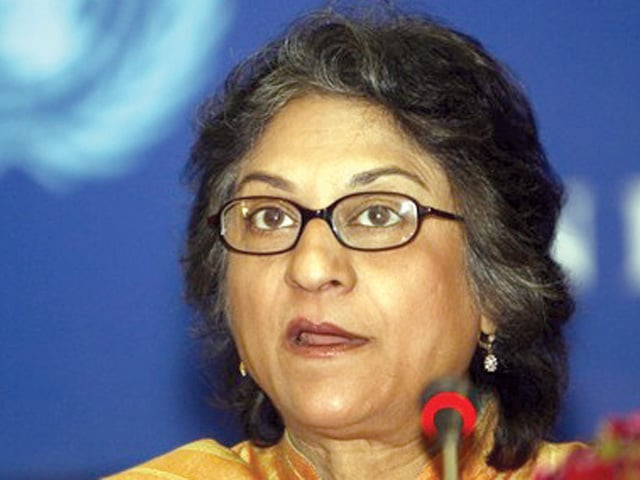Supreme Court decision undermines legislature, says Asma Jahangir
Jahangir says the judgment would "encourage unscrupulous individuals" to contrive their way up the bench.

Supreme Court Bar Association president Asma Jahangir has taken “strong exception” to the Supreme Court’s short order overruling the decision of a parliamentary committee not to grant extensions to six additional high court judges.
Jahangir told The Express Tribune that the judgment had undermined parliament and would “encourage unscrupulous individuals” to contrive their way up the bench.
She said that the facts placed before the court raised more doubts about the selection process by the Judicial Commission rather than the parliamentary committee.
The record, she said, showed that the Judicial Commission disregarded the negative comments made by the chief justices of the high courts about the six additional judges, she said.
No reasons were given to explain why these remarks were not considered, she said. The 18th Amendment of the Constitution was amended by the 19th Amendment to accommodate the concerns of the Supreme Court, but parliament did not accept that their decision should ultimately be subject to judicial review, she said.
Relegating the parliamentary judicial commission to a rubber-stamp body defeated the spirit of the Constitution, she said. “The present short order has, in fact, amended constitutional provisions to take full control of appointment of judges by the Judicial Commission,” she said.
“It is a matter of deepest concern that the SC should collude with a petitioner who is promoting the interests of individuals who, by all accounts, were judged as very average but want to remain on the bench at all costs. Surely no grave injustice was done by dropping the substandard candidates. This cannot warrant a confrontation with parliament,” she said.
Published in The Express Tribune, March 5th, 2011.



















COMMENTS
Comments are moderated and generally will be posted if they are on-topic and not abusive.
For more information, please see our Comments FAQ